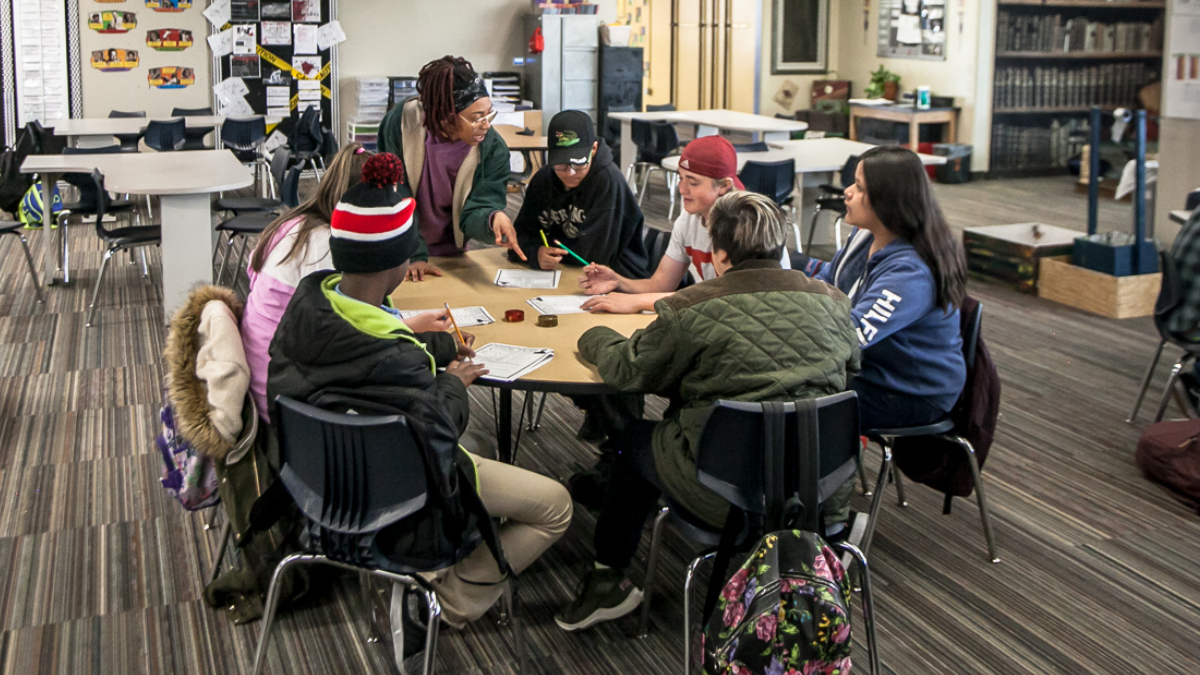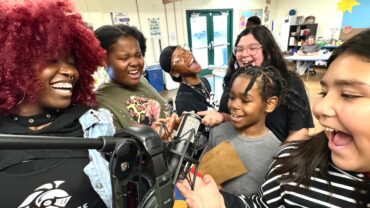Exploring iLEAD Lancaster Culture: What’s the ‘D’ in ‘iLEAD’?

Editor’s Note: This is one in a series of articles on the pillars of iLEAD’s educational philosophy and approach.
“What will make someone successful is your relentless capacity to innovate, to create…. It’s your ability to see through challenges, to look for opportunities in problems, and to take action to change things instead of waiting for someone else to do something.” — Yong Zhao
This week’s article brings us to the fifth and final component of the iLEAD acronym; the final piece that ties it all together and makes the iLEAD experience different and meaningful: D, for “Design Thinking.”
The elements of the iLEAD acronym that we’ve unpacked so far include the following:
- International: We believe learning foreign languages and cultures makes our learners compassionate, open-minded world citizens.
- Leadership: Practicing leadership from a young age prepares our learners for a lifetime of listening, collaborating, inspiring — leading.
- Entrepreneurial Development: Encouraging learners to work in teams, take risks and learn from failure nurtures their ability to innovate and ignites their entrepreneurial spirit.
- Arts: Creating and exploring the world through the artistic experience enhances all subject areas for our learners.
This brings us to Design Thinking, which is all about problem-solving. Time and again, we have observed how participating in project-based learning (PBL) leads to more meaningful experiences and a deeper understanding for our learners. That is why iLEAD Lancaster offers a dynamic classroom approach where learners actively explore real-world challenges to acquire deeper knowledge. Research shows that a learner’s retention of content and interest in learning increase when PBL is done well.
A PBL curriculum that reinforces design thinking includes the following:
- Mastery of core academic content: Learners build their academic foundation in subjects such as reading, writing, math and science. They understand key principles and procedures, recall facts, use the correct language, and draw on their knowledge to complete new tasks.
- Critical thinking and problem-solving: Learners think critically, analytically, and creatively. They know how to find, evaluate, and synthesize information to construct arguments and come up with solutions.
- Collaboration: Collaborative learners work well in teams, communicating and understanding multiple points of view, and they know how to cooperate to achieve a shared goal.
- Effective communication: Learners communicate effectively in writing and in public presentations. They structure information in meaningful ways, receive and give feedback, and construct messages for particular audiences.
- Self-directed learning: Learners develop an ability to direct their own learning. They set goals, monitor their own progress, and reflect on their own strengths and areas for improvement. They learn to see setbacks as opportunities for feedback and growth.
- Growth mind-set: Learners with a growth mind-set trust their own abilities and believe their hard work will pay off, so they persist to overcome obstacles. They also learn from and support each other. They see the relevance of their schoolwork to the real world and their own future success.
When all is said and done, iLEAD Lancaster’s emphasis on design thinking through project-based learning is building learners into well-rounded individuals who are empowered to succeed — in school and in life.
At iLEAD Lancaster, the whole truly is greater than the sum of its parts. Each component of the iLEAD model influences the others, shaping kids into lifelong learners who can make a difference in their world — now and in the future.
RECENT POSTS

Sign Up for iLEAD Lancaster’s Free Summer Enrichment Program
We are excited to offer a free Summer Enrichment Program at iLEAD Lancaster! June 23-July 22, learners enrolled for the 2025-26 school year can attend campus sessions Monday through Friday… Read more

Every Day Counts: Show Up, Shine & Succeed at iLEAD Lancaster
Learners: Every Day Counts: Show Up, Shine & Succeed! Your education matters. Attend school daily. Families: Support your learners’ success. At iLEAD Lancaster, every day is a chance to learn,… Read more

Grades 3-8, Join Our “Let It Out!” Creative Arts Program: Tuesdays and Thursdays
Exciting news! We’re adding grades 3 and 4 to our “Let It Out!” Creative Arts Program! Now learners in grades 3-8 are invited to join us for our popular after-school… Read more


